In recent years, the popularity of Japanese sake has been steadily increasing worldwide. In addition to the flavor of sake, which allows people to savor the deliciousness of the rice, Japanese sake culture cultivated by breweries with over 100 years of history is far-reaching, including label designs utilizing family crests and unique fonts. This collection focuses on the graphics used in logo and label designs. Through T-shirts, we invite you to immerse yourself in this unique worldview.
This collection features collaborations with four breweries: Kenbishi (Hyogo Prefecture), Dewazakura (Yamagata Pref.), Daishichi (Fukushima Pref.), and Nanbu Bijin (Iwate Pref.). Each brewery leverages its region's unique climate and environment to brew sakes with meticulous attention to detail, upholding long standing methods dating back to its founding. The philosophies, ideologies, and roots of these breweries are not only reflected in the labels on their bottles but also in the logos and designs that adorn aprons, noren (split curtains hung at shop entrances), and other items. The designs of this collection focus on the iconic motifs that symbolize the roots of each brewery and are incorporated into T-shirt designs. To promote Japanese sake and its culture, which is garnering attention around the world, special decorations will be put up, and events will be held at local stores near the breweries, as well as at the UNIQLO Harajuku store and the Paris Opera store in France. The interiors of the stores have been transformed into vibrant, festive spaces.
KENBISHI
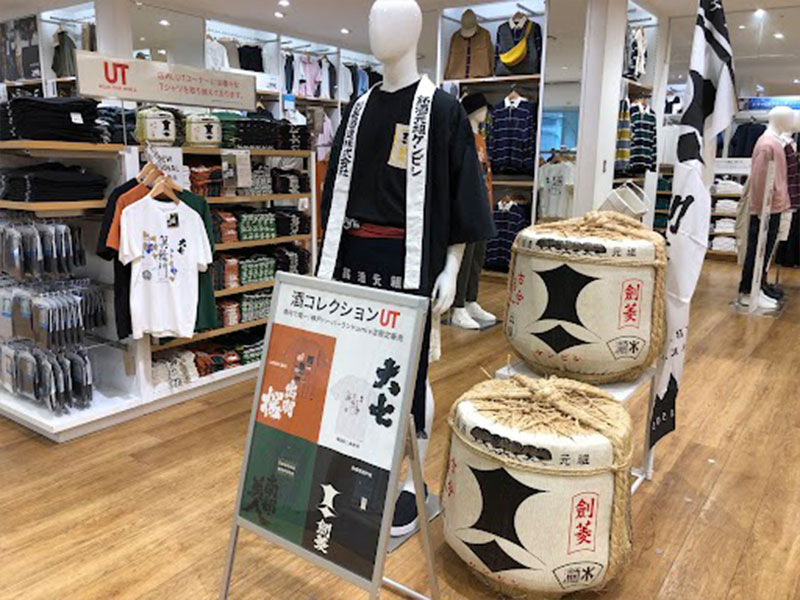
At the UNIQLO Kobe Harborland umie store, located in Kobe City, which is home to the Kenbishi brewer. The Kenbishi logo engraved on sake barrels is quite impressive.
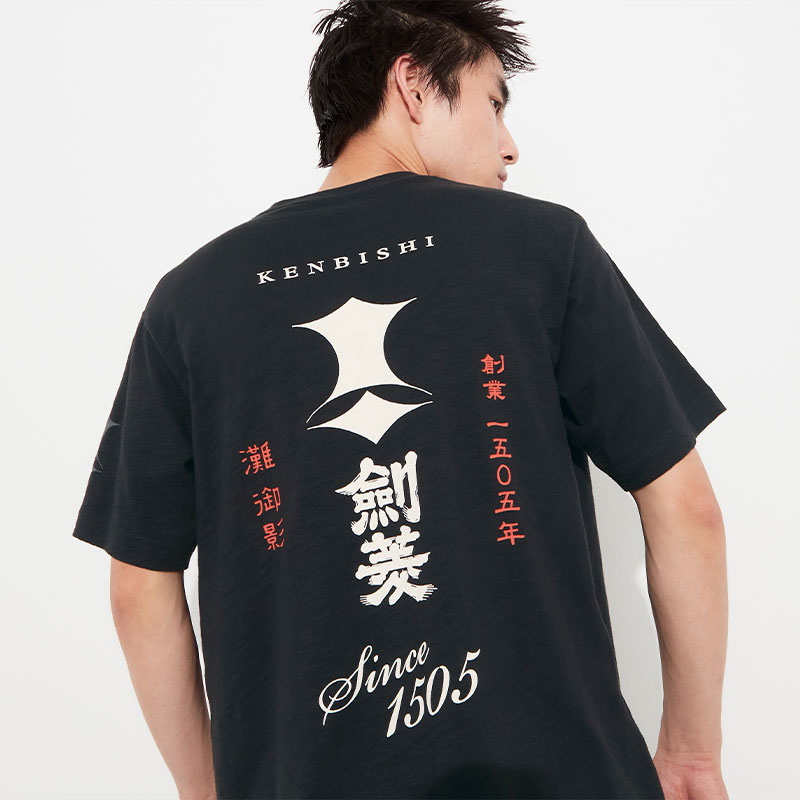
DEWAZAKURA
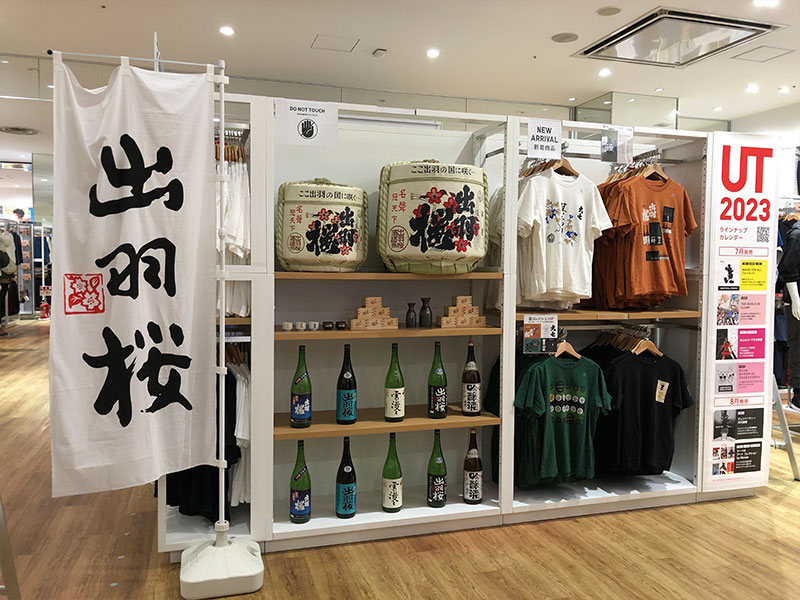
The impactful banners and graphical arrangement of square sake cups and bottles are impressive at the UNIQLO Aeon Mall Tendo store.
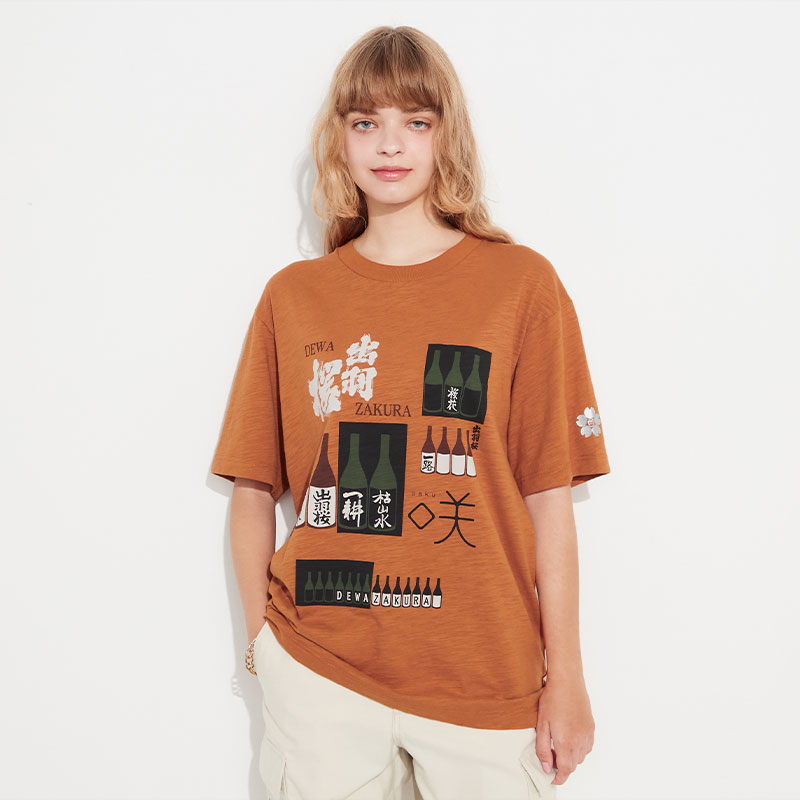
DAISHICHI
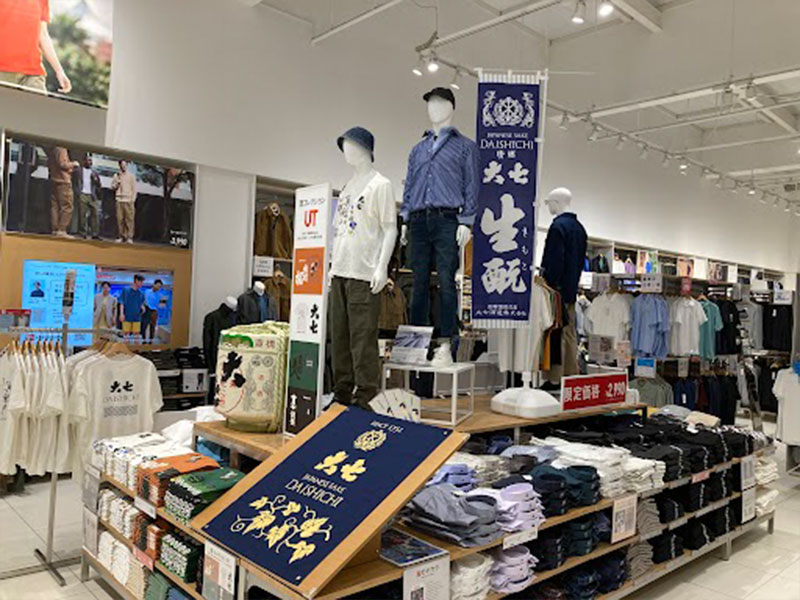
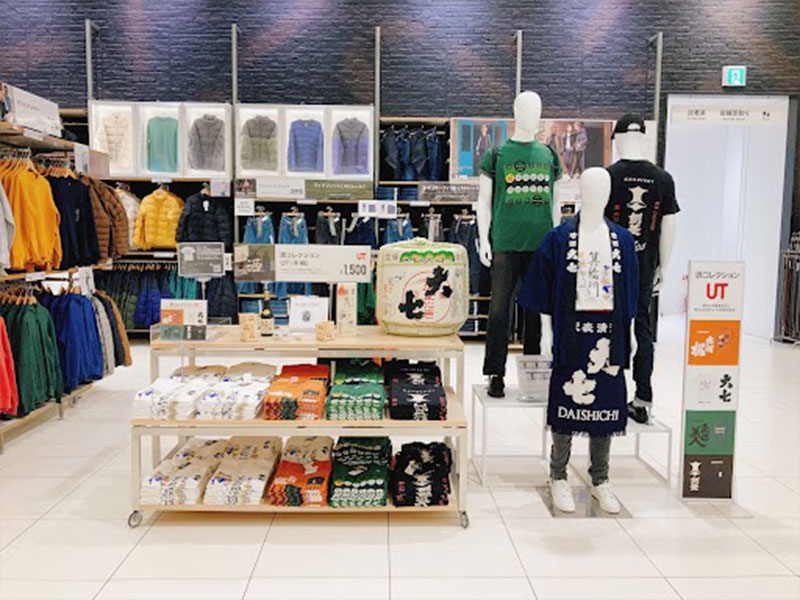
At the UNIQLO Koriyama Hiwada Festa Mall store, customers were warmly welcomed with a display comprising a variety of decorations, including Daishiichi sake barrels, banners, happi coats, aprons, square sake cups, and shot-size sake cups.
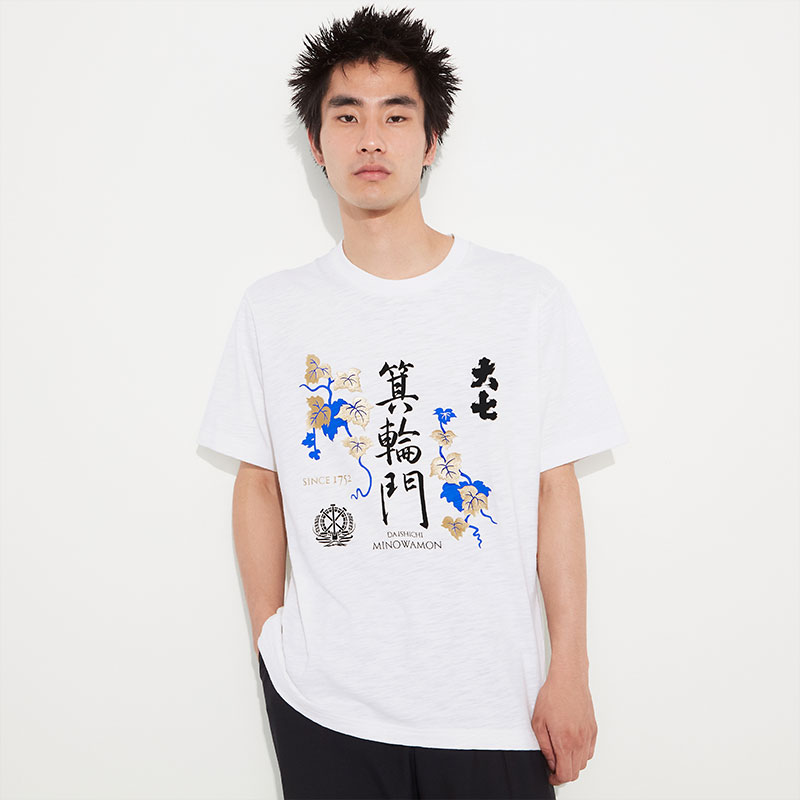
NANBU BIJIN
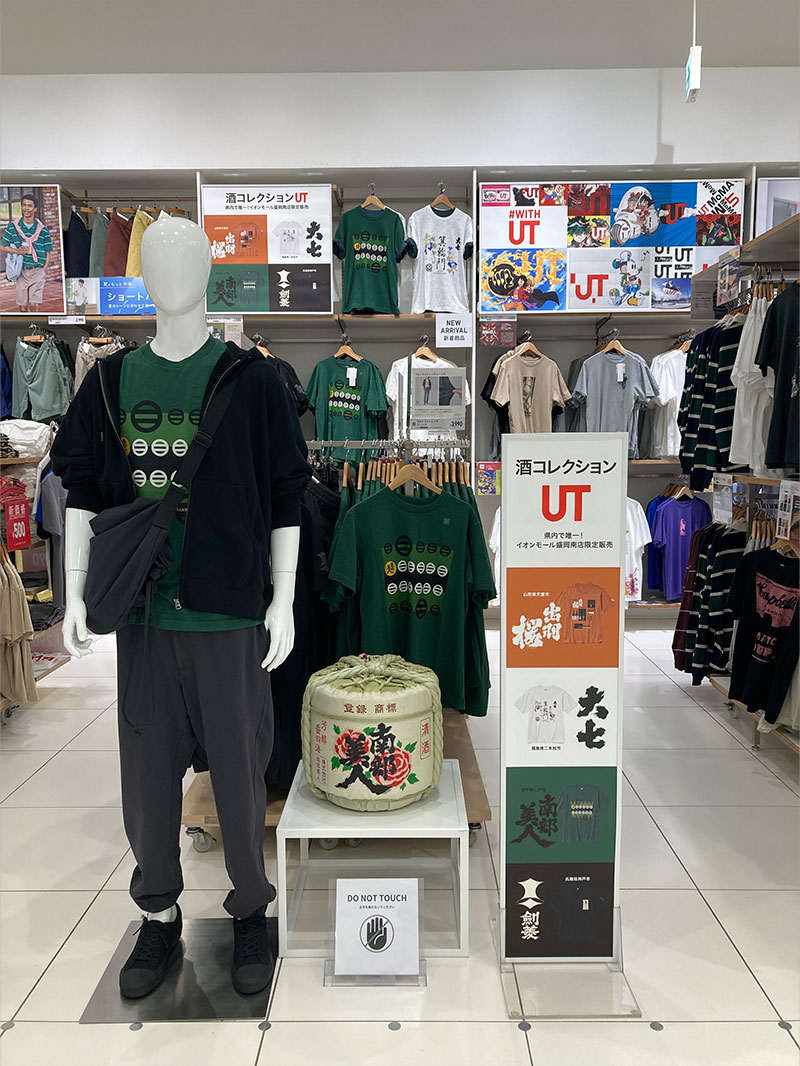
Nanbu Bijin sake barrels were on display at the Aeon Mall Morioka Minami store. The graphical design and rich green body color make it perfect for chic styling.
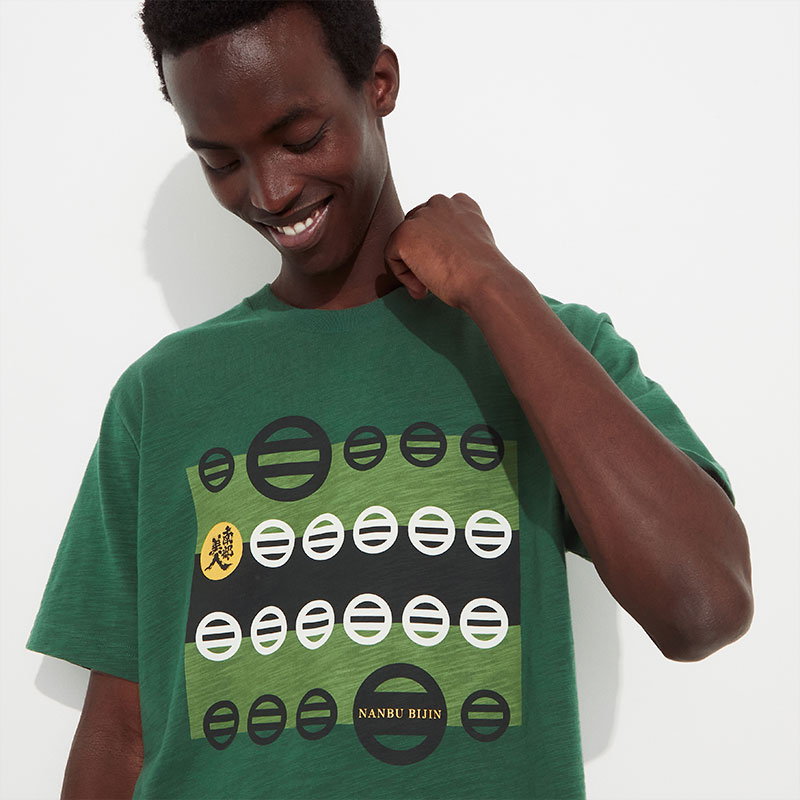
Events at the Harajuku store and Paris Opera store.
To celebrate the release of the Sake Collection, the Harajuku store in Tokyo held a tasting event featuring Koji Amazake (non-alcoholic) from Dewazakura Brewery and a lottery to give away original sake cups from Daishichi Brewery. There were many overseas visitors, and the event was well received.
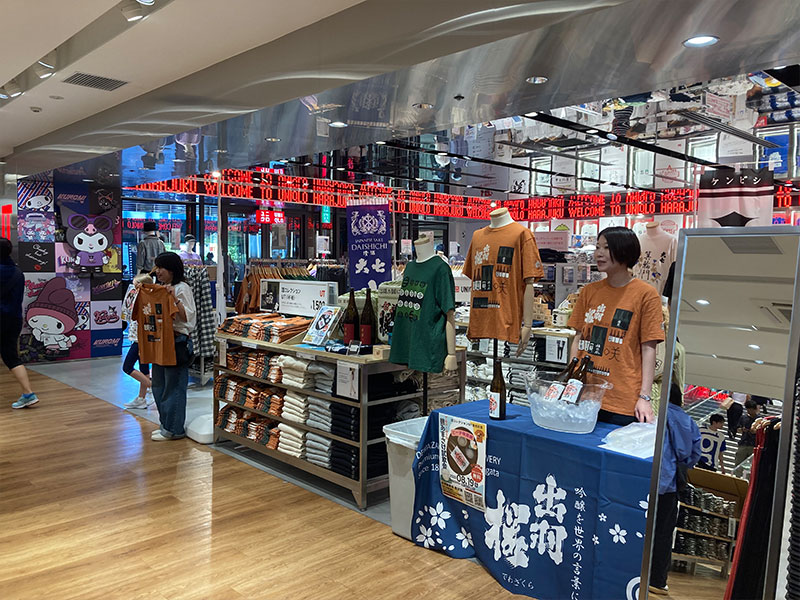
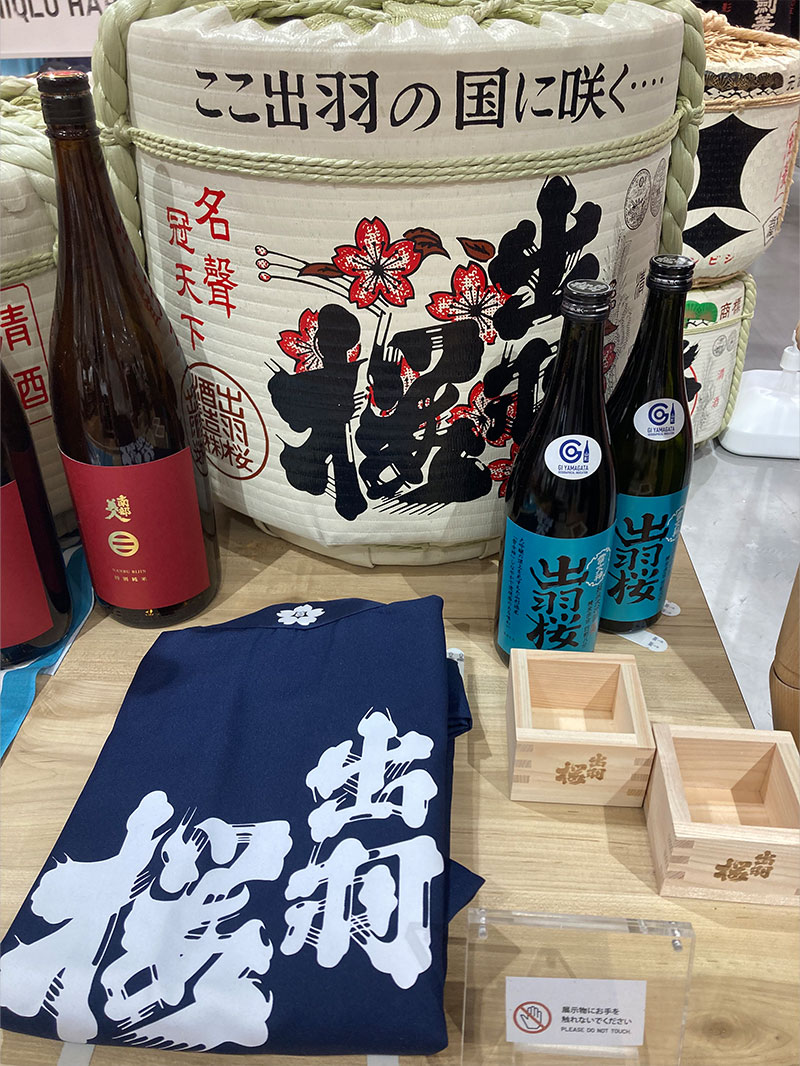
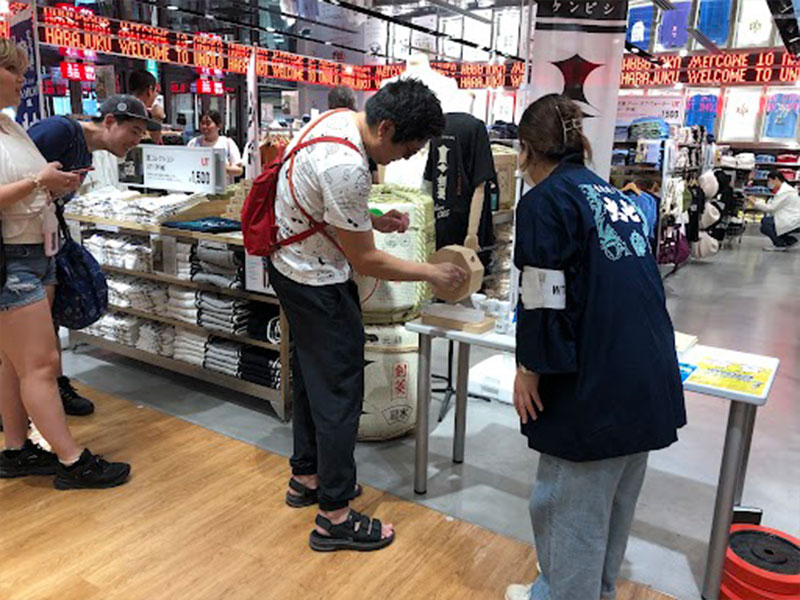
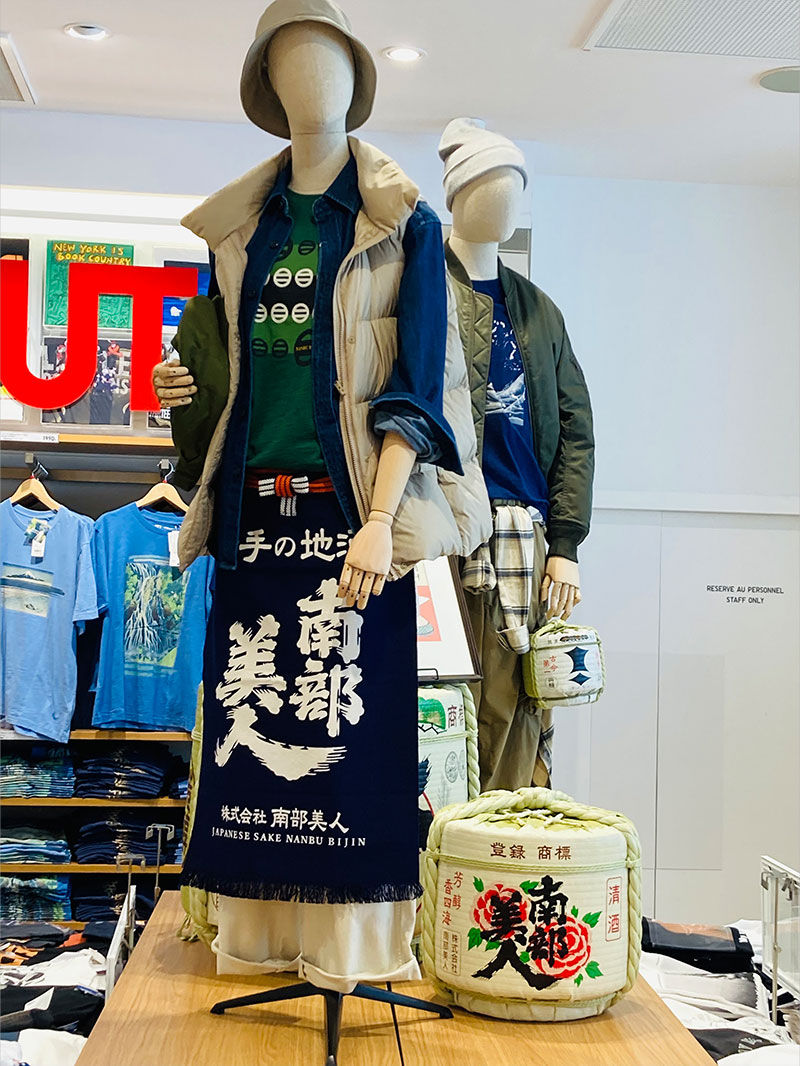
Styling T-shirts with traditional Sake berewry’s aprons looks cool at the Opera store in Paris just reopened mid September.
PROFILE
Kenbishi|Since its founding in 1505, Kenbishi has maintained the same unchanging taste through timeless brewing methods. Its distinctive logo, which has remained unchanged for over 500 years, has appeared in Ukiyo-e woodblock prints and Kabuki plays.
PROFILE
Daishichi|Founded in 1752, the renowned Daishichi Sake Brewery in Nihonmatsu City, Fukushima Prefecture, has a proven track record and earned high praise for its traditional sake yeast mash starter and innovative ultra-flattened rice polishing techniques. Its intricate and refined flavors embody the innate goodness of sake that comes to life with meals and has garnered worldwide acclaim.
PROFILE
Dewazakura|Since its founding in 1892 in Tendo City, Yamagata Prefecture, local brewers have been hand-crafting this exquisite sake with skilled expertise. For many years, they have been making ginjo sake (high-quality sake brewed by low-temperature fermentation from white rice milled to 60%). In 1980, they pioneered the sale of ginjo sake, launching sake brewed with this method ahead of other companies. This brewing expertise has been passed down through the generations, and the most distinctive characteristics of Dewazakura sake lie in its spirited aroma and sharpness.
PROFILE
Nanbu Bijin|Founded in 1902. The name “Nanbu Bijin” is derived from “Nanbu no Kuni,” the honorific name for Ninohe City in Iwate Prefecture, and the desire to brew clean, beautiful sake.
Release dates and prices may vary. Some items might be limited to certain stores or countries of sale or may be sold out.













